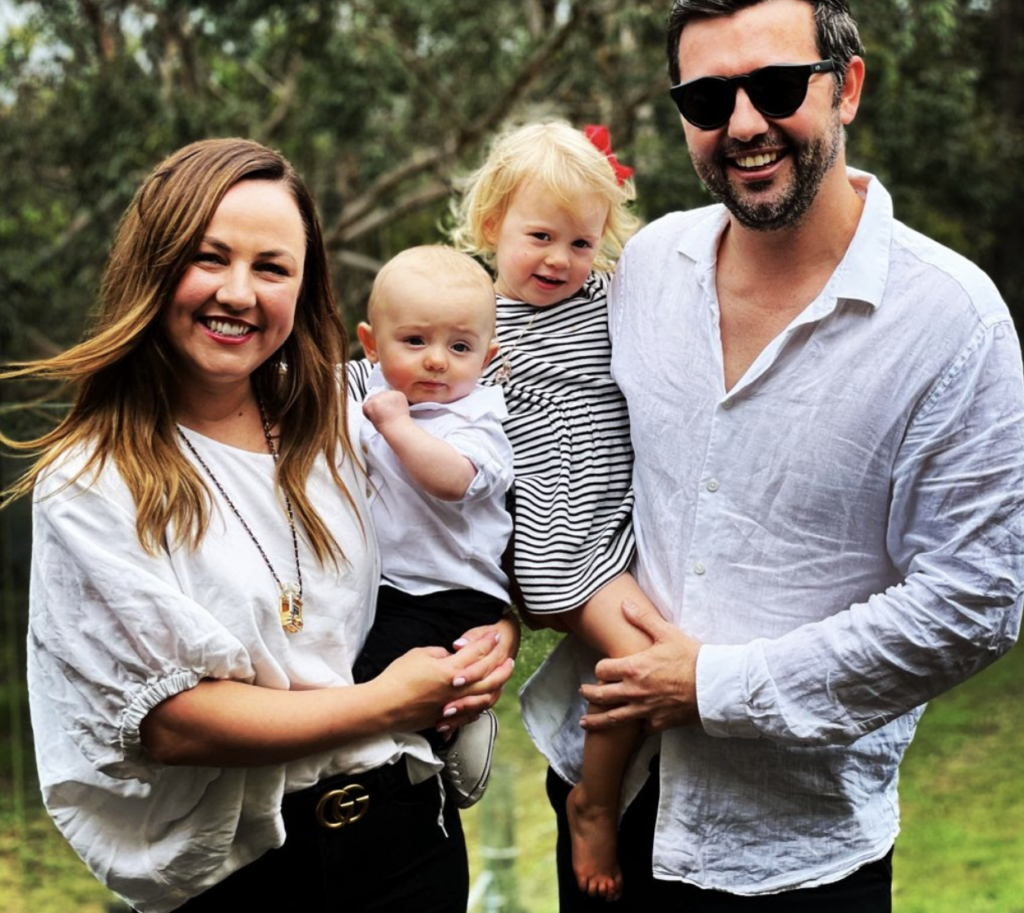Real mums: Mother’s groups and saying goodbye to spontaneity
This is where we chat to real parents about all the real sh*t that goes down when you have little ones enter your life. From the hilarious to the heartwarming but also the hard times, heartbreak and everything in between…
Yarna Halton is mum to two little ones; Summer Shaw who is 3.5 going on 16 and Parker turned 1 a month ago… “Where did my baby go?”.
She is also a busy working mum as Kiindred’s own Brand Partnerships Manager.
Here Yarna chats to us about her life with two little ones, saying goodbye to spontaneity and how her mother’s group helped her through those tough early days – and still do now!
Can you tell us a little bit about your motherhood journey so far?
I was lucky enough to fall pregnant very very quickly – both times! That’s something I don’t take for granted and am very grateful for, however it didn’t give me much time to ‘plan’ and I was in denial for quite some time. I kept my ‘old life’ as much as I could with my first baby and still socialised a lot, went back to work quickly, tried to pretend I didn’t have this new life.
It wasn’t until my second came along that I really leaned into this new world and from that moment onwards I felt a shift in who I was as a person and as a mum. It’s important that I am both of these and not just one of them. I am a mum but I’m also me – and while these lines get blurred all the time (usually in favour of the mum persona) it’s important to take a step back and remember who I am too.
Get tailored content based on your week of pregnancy
By signing up, you agree to receiving our Newsletters. Cancel anytime.



What surprised you most about being a mum?
SO SO many things! But mainly the change in lifestyle that came with it. Nothing is spontaneous in life, sleep-ins are a thing of the past, quality time with my partner is something I crave – and not a given
What I love most is seeing my family with my kids, particularly my parents – I have a terrible memory and I feel this gives me a glimpse into what an amazing upbringing I had.

Related Articles
How did you feel going into motherhood?
I had a ‘bury my head in the sand’ approach when I was pregnant. Everyone was giving me advice and I wanted to do it my way. Once Summer came along I definitely wanted more information and practical advice to help me navigate the early days. I was lucky enough to have a lovely friend on hand (thanks Emmy) who I would message at all hours of the night asking random questions. I still remember texting her asking if it was too early to start sleep training – Summer was barely a couple of weeks old haha.
I have an amazing mother’s group who helped me through the early days – scratch that, still helping me now! Being surrounded and supported by people in similar circumstances to you was invaluable – especially when no questions were inappropriate or you needed a friend at those 3 am feeds or someone to sit and have a wine with in your trackies!
What impact did becoming a mum have on your life/career, if any?
I think I’m still figuring this out. I’ve recently started back at work after a 14-month break and I’m still working through the juggle. I know I want the best of both worlds – for me personally, I don’t want a career that means I don’t get to spend time with my kids. So flexibility and the right support network is key and not easy to come by.
What is the best advice you’ve received when it comes to parenting little ones?
Go with your gut instincts! You will get SO much advice from so many different sources and some of it is awesome – and some of it is useless.
Take as much information and advice as you need but always listen to that feeling inside that tells you what is right for your family. Every family is different so what works for your mum/sisters/aunties/friends might not be right for you. Block the negative and go with what works for you.
What is your favourite thing about being a mum?
Seeing their little personalities start to come through – which is pieces of you, your partner, mum, dad, brother etc all mixed up into a tiny little unique package
My eldest is so sassy and goes from smile to tantrum in a hot minute but she has the kindest heart and when she curls up to me at the end of the day and tells me she loves me to the moon, and the rainbows and back again – it makes all the tantrums worthwhile!

Do you have an amazing story about parenthood to share yourself? Drop us an email at [email protected].

Kiindred Follow +
Brought to you by the Kiindred Editors. Our team are committed to researching and writing on all the things we know you will want to know about, at each stage of your pregnancy and parenthood journey.




